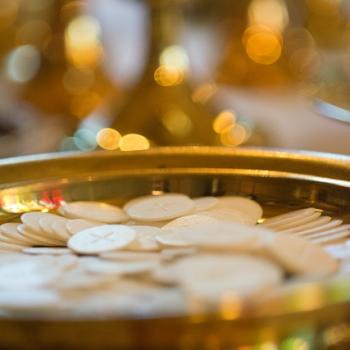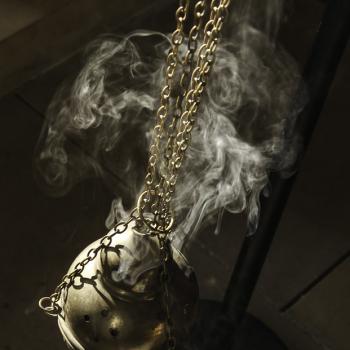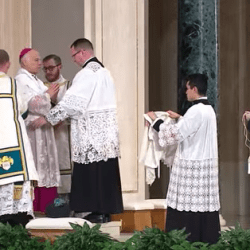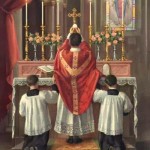Weeks after Phoenix moved to restrict use of the Precious Blood during Mass, it now appears that Madison, Wisconsin is moving in the same direction.
Fr. Z. broke the news:
On the site of the parish of the Cathedral of Madison in Wisconsin, where His Excellency Most Rev. Robert Morlino is, by the grace of God, the ordinary, there is a pdf of the parish bulletin in which it is explained that they are ending regular distribution of Holy Communion under both kinds.
The bulletin announcement says:
In the last couple of decades, Communion under both species (with the congregation able to receive the Precious Blood as well as the Sacred Host) has become routine in our experience. I knew (as many of you do) that Communion under both species was first introduced, on a limited basis, after the Second Vatican Council, and that it has become much more common since. What I did not know was that the widespread American practice of offering both species at most Sunday Masses began here under an indult (special permission) given by the Vatican in 1975, which expired in 2005…
…So, all over the United States, we now find ourselves needing to bring our practice into conformity with current regulations (and with the rest of the world). In his comments at Chula Vista, Bishop Morlino mentioned a few instances in which Communion under both kinds is still permitted: the Chrism Mass, the Feast of Corpus Christi, for the bride and groom at a Nuptial Mass, and for those so allergic to wheat that they cannot tolerate even low-gluten hosts. Beyond those occasions and circumstances, Communion can be offered under both species at celebrations of special importance. But it is clear that we will not be seeing Communion under both species as a weekly practice.
UPDATE: There’s an interesting dissection of the indult involved, and the GIRM, by Daniel Horan over at Dating God. His take:
It strikes me as nothing less-than an clerical overstepping and unnecessary demarcation of the clergy and laity. What are these pastors (by which I mean the Canonical notion of pastor) thinking? It seems, at least superficially, that it is an “in” and “out” club — who is and who is not permitted to receive from the cup. The only shred of juridical support is the technicality about who can and cannot clean the cups after Communion. Seriously, we have more important things to be concerned about. Provided the extraordinary ministers of the Eucharist, with some very simple instruction and supervision of the presider, know what they are doing and are respectful — as the law demands — of their duty, then there should be absolutely no problem with their purification of the sacred vessels.
It is, one must admit, rather humorous that these men are so very concerned about who “does the dishes,” as it were. If only the married women who are oftentimes the extraordinary ministers of the Eucharist could instill such a fervent desire in their husbands at home, there might be fewer fights between couples in the kitchen after dinner!












